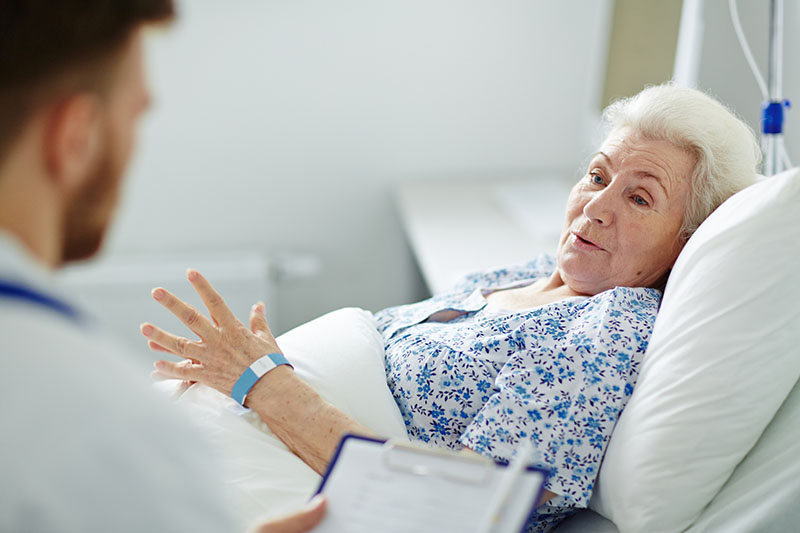Notice of privacy incident at Brigham and Women's Faulkner Hospital Learn More
Header Skipped.
Notice of privacy incident at Brigham and Women's Faulkner Hospital Learn More
Header Skipped.
On 7 South at Brigham and Women’s Faulkner Hospital, a new program has been developed to ensure age-appropriate care during the post-operative period. The Superior Surgical Treatment for Seniors Pathway (SSTEP) is tailored to patients 70 years of age and older and aims to make improvements in several areas: post-op delirium, post-op complications and 30-day readmission rates.
“SSTEP involves a multidisciplinary care team,” explains 7 South Nurse Director Jennifer Capone, MSN, RN. “Nursing, physical therapy, pharmacy, dietary, nursing leadership and the physicians and APPs all work together to ensure our surgical patients over the age of 70 have the best possible outcome.”
One of the key components of the program is the implementation of a sleep/wake cycle. This means patients may have uninterrupted sleep if medically appropriate, they are out of bed for meals and encouraged to ambulate. In addition, collaboration between providers and the pharmacy focuses on medication-related changes including dosing, frequency and deliriogenic medications.
“These interventions are key to ensuring the patient properly recovers from their procedure, but doesn’t risk deteriorating mentally or physically as the result of a hospital stay,” says Nursing Professional Development Manger Erica Babine, MSN, RN.
So far, the 7 South team has seen positive outcomes among the patients participating in SSTEP. “Our goal is always to provide the highest quality care possible to our patients,” says Capone. “SSTEP is one more tool in our belt to help us tailor a care plan to members of this unique patient population.”

Looking for more news from BWFH? Go to News to find articles about health, updates to our programs and services and stories about staff and patients.
Go to News